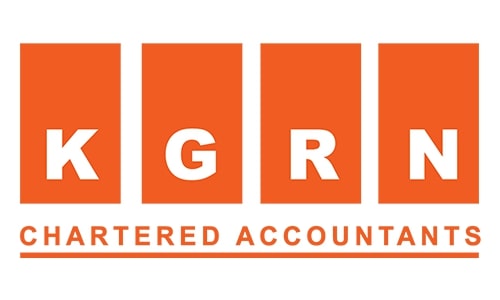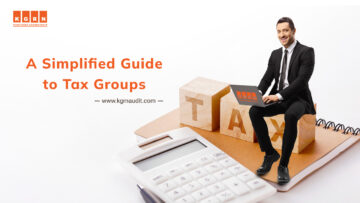The Ministry of Finance (MOF) of the United Arab Emirates (UAE) has said that a federal company tax will be put in place all over the country. (dubbed the “UAE Corporate Tax”). For the purposes of this definition, a “Corporate Tax” is a type of direct tax that is paid on the net income or profit of a company or other business. It may also be called business profit tax or corporate income tax, depending on the situation.
The UAE’s newly established corporation tax will go into effect in 2023, with the fiscal year beginning on June 1st of that year. The corporation tax code is still in the process of being fully finalised. Nonetheless, we will go over some of the most important aspects of the newly proposed business tax legislation in greater detail in this post.
What is the extent of the application of the corporation tax?
All business and commercial activities within the UAE will be subject to the corporate tax, except for natural resource exploitation, which will remain taxed separately in each emirate. UAE company tax law considers a firm’s accounting net profit after deductibles taxable income.
Corporate money is taxed. Commercial operations, including all business activities conducted in the UAE under a trade licence or permission and income received under freelancer licence agreements, would fall under the UAE corporate tax regime if taxable income exceeds Aed 375,000.
UAE Tax Agent – Navigate Tax Regulations with Ease!
Certified UAE tax agents offering specialized tax representation, compliance support, and advisory services to navigate the UAE tax landscape. We assist with all tax-related matters, ensuring you stay compliant and avoid penalties. Get in touch today to ease your tax journey!
Additional Advantages of the UAE Business Tax Are as Follows:
- UAE taxes are simple and advanced. This helps businesses handle taxes and prevent penalties.
- The UAE’s corporation tax rate is low compared to neighboring countries. Thus, corporations looking to reduce their tax burden will find the UAE appealing.
- The corporation tax rate is unlikely to rise in the UAE, which has a history of low taxation. This makes the UAE a more attractive location for businesses.
Any company considering expanding into the UAE must consider the corporate tax. UAE corporation tax benefits can help your business.
The Following Are the Most Important Provisions of the Newly Passed Federal Company Legislation in the United Arab Emirates:
- The corporate tax must be paid on taxable income in excess of Aed 375,000, whichever is higher. This will result in a zero percent corporate tax rate for taxable income up to Aed 375,000 in the first year of application.
- Corporate income in excess of AED 375,000 is subject to two distinct rates of taxation. In the first, a 9 percent tax is levied on taxable income above AED 375,000, while in the second, a special tax rate is applied to big international corporations that satisfy certain requirements.
- During the fiscal year beginning on July 1, 2023, and concluding on June 30, 2024, which will be its first year of operation, the new tax system will go into effect for the first time.
- However, if a company’s fiscal year begins on 1 January 2023 and ends on 31 December 2023, it will be liable to UAE corporation tax beginning on 1 January 2024, unless the company is exempt from the tax.
- A new entity, the Federal Tax Authority (FTA), was founded in 2016 and will be responsible for administering, collecting, and enforcing the UAE’s corporate tax laws, which will be supervised by the Ministry of Finance. The FTA will be governed by the Ministry of Finance.
- The Ministry of Finance will also continue to serve as the competent authority for the purposes of an international tax treaty or another international tax arrangement, including when tax information is transferred, in accordance with existing legislation.
The Following Exemptions Are Available Under the UAE Corporate Tax System:
- Employees in both the public and commercial sectors, regardless of where they work, are exempt from paying taxes on their individual earnings and employment income.
- For as long as they are acting in their own personal capacity, individuals who invest in real estate or who get capital gains from personal stock or bond investments in the form of dividends are not subject to tax on the income generated by their assets.
- Businesses created and registered in the UAE’s free zones will be liable to the country’s corporate tax system, but only to the extent that their operations occur within the country’s borders. The corporation tax exemption granted to such business entities for operations conducted outside the UAE would be recognised under both the new and existing corporate tax systems, the UAE government announced today.
-
Certain government departments or divisions are typically exempt from paying corporate taxes because they are deemed to be part of the public sector.
-
Government-owned and administered businesses and organizations, such as state-owned enterprises, are frequently exempt from corporate taxes.
-
Depending on the tax regulations of the jurisdiction, individuals or businesses engaged in the extraction of natural resources, such as mining or oil drilling, may be exempt from certain corporate taxes.
-
Service-oriented businesses that do not rely on natural resource extraction may also be eligible for corporate tax exemptions.
-
Charities and philanthropic foundations, which operate for the public good, are typically exempt from paying corporate taxes.
-
To encourage investment and economic growth, investment funds that meet certain eligibility requirements may be exempt from corporate taxes.
Introducing a new corporation tax system in the United Arab Emirates for the first time would allow the country to adopt international best practices in the construction of a major global centre of investment and business, as well as accelerate the government’s strategic development objectives.
The new modifications also underline the country’s commitment to fulfilling international standards for tax transparency and limiting the use of abusive tax practices in the country’s financial sector.
If you want to complete company tax forms in Dubai. KGRN is a one-stop-shop for all of your business requirements, providing one-on-one assistance from a subject matter expert. The KGRN staff can assist you in filling out your company’s tax papers.
Related Info:







